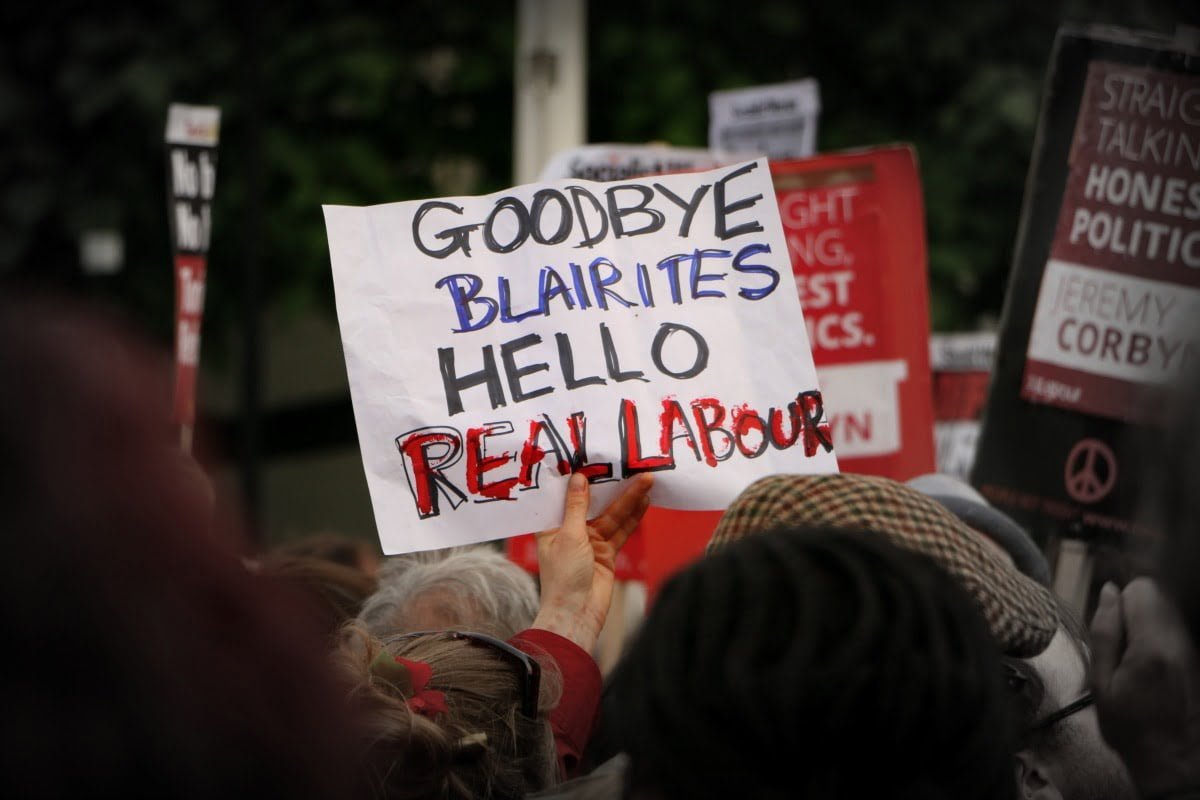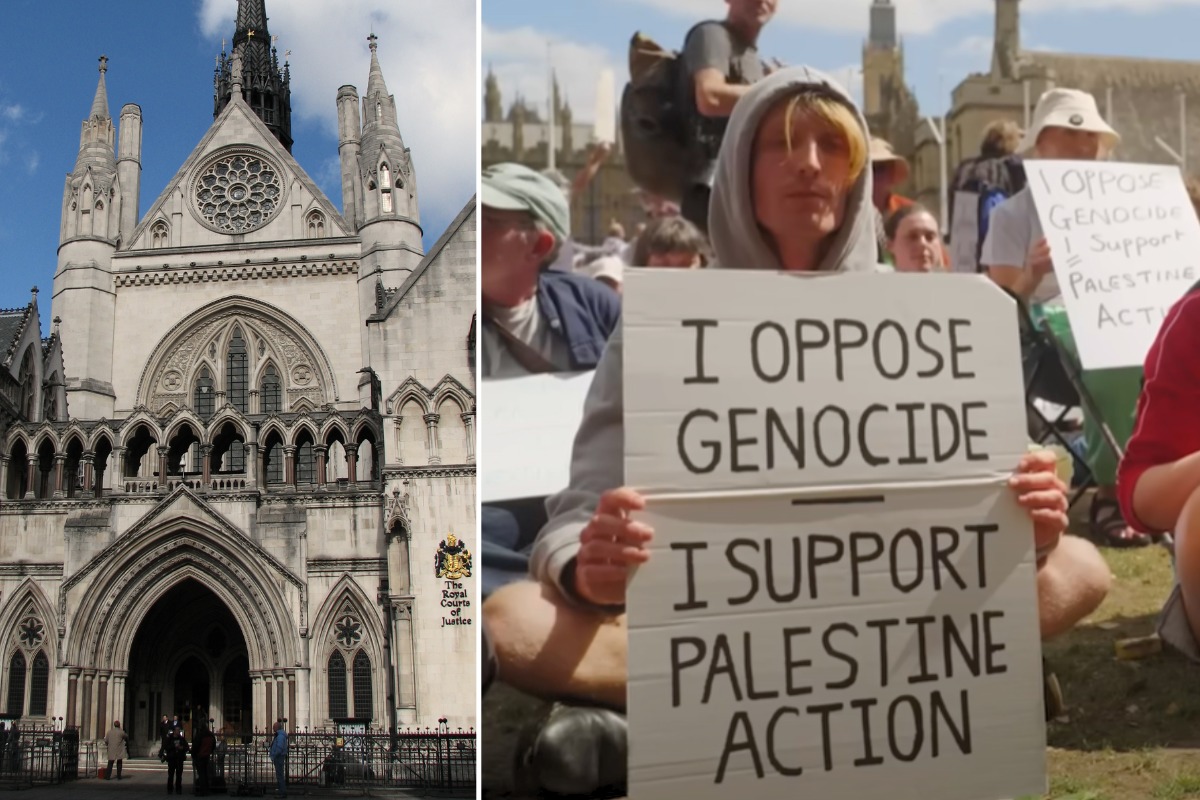Labour’s National Executive Committee earlier this week decided on a number of important organisational issues that will have a critical bearing on the future direction of the party. This sets the scene for a wider battle at the Labour Party conference this weekend, as Corbyn supporters seek to consolidate the Left’s position and reclaim the party from the Blairite bureaucracy.
An important meeting of Labour’s National Executive Committee (NEC) earlier this week decided on a number of important organisational issues that will have a critical bearing on the future direction of the party.
This sets the scene for a wider battle at the Labour Party conference in Brighton this weekend, as Corbyn supporters seek to consolidate the Left’s position and reclaim the party from the Blairite bureaucracy.
Left strengthened
In what is widely acknowledged as a move that will strengthen Corbyn and the Left, the NEC agreed to proposals that would see the threshold of nominations for a leadership bid reduced from 15% of MPs and MEPs to 10%.
This step forward, however, is already a compromise from was being originally proposed in the so-called “McDonnell” amendment (named after the Shadow Chancellor), which sought to reduce the nomination threshold for leadership candidates down to just 5%.
The suggested changes are intended to form the first steps in a wider review of the party’s democratic structures – a “broad review into democracy and participation” to be undertaken by former Labour MP, Katy Clark.
Whilst moves to strengthen the role of grassroots members and trade unionists within the party are to be welcomed, it is notable that vital questions such as the democratic accountability of MPs to the membership – through the mechanism of mandatory reselection – are absent from the list of reforms that will be covered by this review.
In addition, the NEC agreed that a further three seats on the currently 35-strong national leading body will be created to represent rank-and-file Labour members, on top of the existing six seats already elected directly by the membership. Provided Momentum and the Left organise to win these elections, this will further tilt the balance of forces on the NEC in favour of Corbyn and his anti-austerity, anti-war programme.
The fact that such proposals were accepted without significant resistance is itself a demonstration of the changed forces inside the party in the wake of the general election earlier this year.
Machiavellian mafia boss, Tom Watson, and his cronies have been severely weakened and demoralised by the election result, which was a massive vindication for Corbyn and his bold left-wing programme. As a result, the Labour right wing have largely been reduced to sniping from the sidelines.
Nevertheless, there is no room for complacency, and Momentum and grassroots members should be pushing forwards to solidify the Left’s position and policies – both at the annual conference this weekend, and in CLPs and wards across the country in the period ahead.
Blairite conference stitch-up
Thanks to a bizarre one-year delay rule, which the right-wing sneaked through some years ago, amendments to Labour’s constitution up for discussion this time round were actually presented by CLPs over a year ago. The aim of this rule is to both delay any changes and allow time for party bureaucrats to organise against them if they wish, which they often do. Indeed, one amendment up for discussion rightly seeks to abolish this ridiculous rule.
At this stage, it is still not clear if – and in what form – all the various critical amendments will be discussed and voted on. Indeed a number of the resolutions on the agenda paper correctly seek to remove some of the restrictions which currently exist over motions from CLPs and affiliates. These include a call to remove the way in which resolutions are deemed “contemporary” or not – a crude device used to rule out resolutions that officials do not like the look of.
These restrictions are a hangover from the Blairite days. Whereas in the past resolutions were freely moved, debated and voted on (even if the parliamentary leadership then ignored them), under Blair the party conference was turned into a week long festival with little debate but lots of “keynote” speakers instead – rather like the Tory Party conference or that of the Democrats and Republicans in the US.
In effect, the Labour conference became a trade fair for think-tanks, lobbying groups, and big business stalls, with a political rally tacked on. Democracy was willfully abused in the interests of a cabal of careerists at Westminster.
Now, however, the party membership – particularly the hundreds of thousands of fresh new members – want control of their party back, starting with the party conference.
One big plus is that the right-wing grip on the Conference Arrangements Committee has been loosened with the election of two left-wingers, both taking up their positions in time for the 2018 conference.
The McDonnell amendment
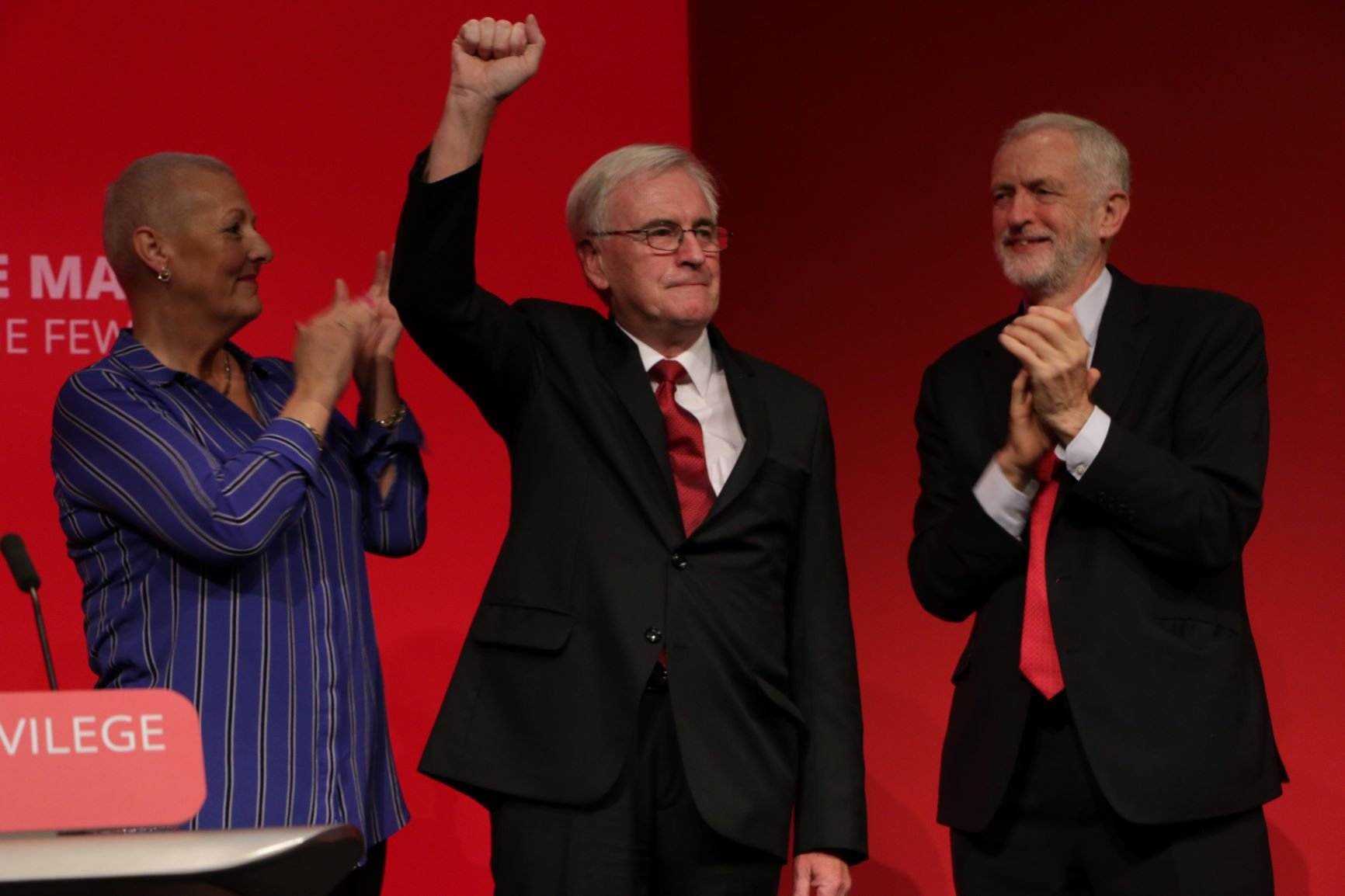 Much discussion at this year’s conference will be focussed on the McDonnell amendment.
Much discussion at this year’s conference will be focussed on the McDonnell amendment.
The current threshold for leadership bids was introduced when Miliband pushed through the plan to replace the old electoral college system with a general vote of party members, affiliated trade unionists, and – crucially – registered “supporters”. The latter category was intended for those who were not actual members, but who declared that they voted for Labour in elections.
The old system gave MPs a third of the total vote, making them kingmakers in any leadership contest. (Although even this did not stop Ed Miliband beating his arch-Blairite brother in the 2010 leadership race, thanks to the votes of members and trade unionists.)
Providing MPs with the new 15% threshold had been intended to reassure them that real decisive power was still in their hands. The masses now had the vote, but MPs would decide who you could vote for.
They were so confident of their superiority that, when it became clear that the likely contest on offer in the 2015 leadership election was a joke, with a “choice” between three “moderates” (read: right-wingers), they let Corbyn on the ballot just to show that they were democrats after all. The outcome of this decision would soon become all too clear.
Richard Angell, Director of the Blairite faction Progress, now says in opposing the McDonnell amendment that:
“…the current rules are already a compromise, and as low as it should go. A further reduction should only be matched by a return to the electoral college with clear voting sections for MPs, trade unions, and constituency members.”
The radical grassroots
Angell conveniently avoids mentioning the fact that the system brought in by Miliband was one that Labour’s right wing had been pushing for years, ever since the rise of Blair. They wanted a US-style system where the activists were swamped by the party membership at large, and the party membership would in turn be swamped by Labour voters at large.
This dissolution of the structures, the right wing believed, would ensure that they would maintain a grip on the party machine.
Of course, all of this assumed that the members were more right-wing than the activists and the Labour voters more right-wing than the members. In fact, the Labour leadership election of 2015 (and again in 2016) showed the reverse, with ordinary Labour voters signing up in droves (and jumping over all manner of desperate hurdles put in their way by the NEC) in order to get Corbyn in…and keep him there.
In the second leadership election, all three voting sections – supporters, members and affiliates – supported Corbyn by a clear margin. Yet we are told by Progress, Labour First and all the various voices of the Blairite establishment that a handful of Labour MPs at Westminster should have some sort of veto against the wishes of hundreds of thousands of party members and trade unionists.
These people want a Labour Party dominated and controlled by MPs, unelected party unofficials, and big business donors. But, we must ask, who does the party belong to? The party’s mass membership, or a small unaccountable clique at the top?
Many will agree with Len McCluskey’s recent statement on the issue where he correctly said that:
“The Labour Party is now the largest political party in Europe and therefore the idea that it is only MPs that decide who goes on a ballot paper, I think is wrong…
“I’d like to widen the franchise, so I’m in favour of having a debate about these things. What I am in favour of is Jeremy’s belief that we should have an open, democratic party. Unfortunately, under New Labour it was bureaucratic and stifled debate.”
For mandatory reselection
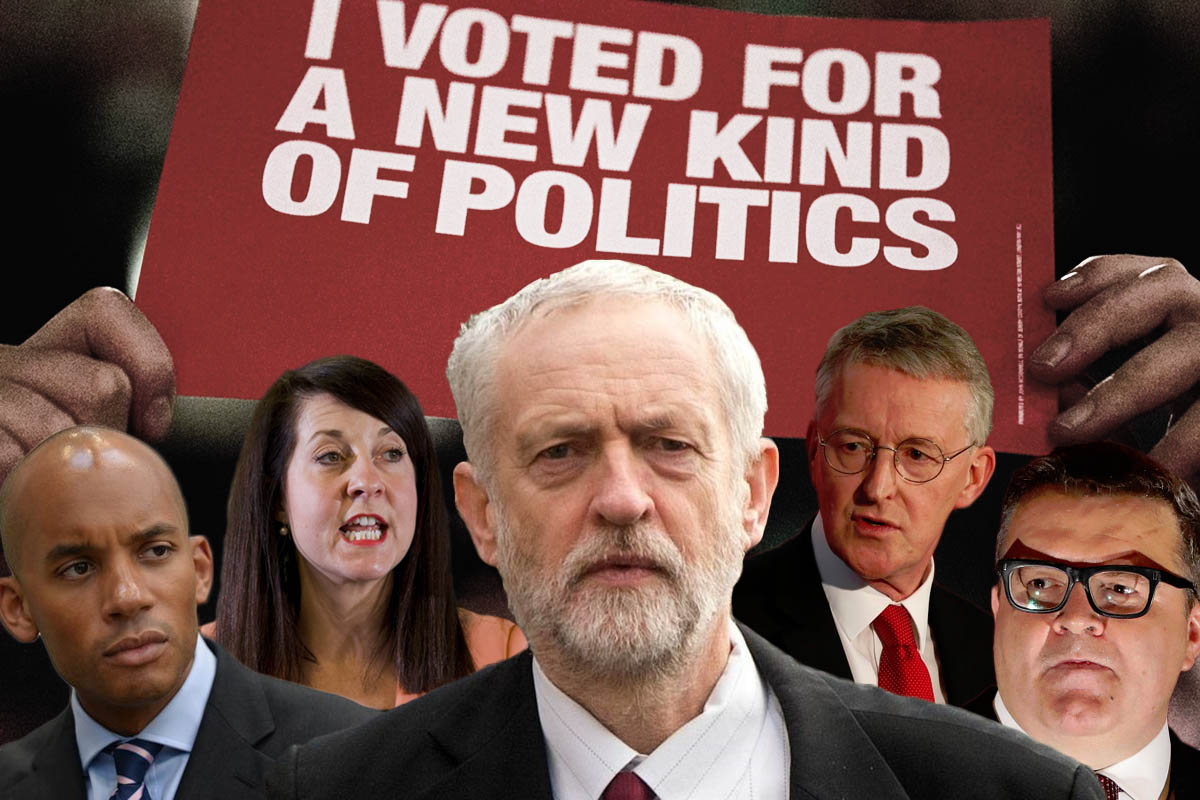 Of course, in one sense, the right wing are correct. How can you have a leader who does not command support from the party’s MP?
Of course, in one sense, the right wing are correct. How can you have a leader who does not command support from the party’s MP?
Behind the McDonnell amendment, therefore, is the more critical issue of who stands and represents Labour at Westminster (and elsewhere for that matter). The dilemma we face is that a left-wing leader is surrounded by a right-wing dominated PLP, full of self-seeking careerists. This situation must be resolved so that party democracy prevails
Many constitutional amendments from CLPs, currently aimed at the 2018 conference under the one-year rule, seek to address this, with calls to bring forward some form of mandatory reselection. Other motions, meanwhile, look to reform the operation of the trigger-ballot process, by raising the level at which sitting Labour MPs can side-step any new selection ballot.
We believe that all elected party representatives should be fully accountable, subject to the right of recall, with no “jobs for life”. Furthermore, such representatives should be obliged to take home a salary no more than that equivalent to the average wage of a worker. The call should be: for workers’ MPs on a worker’s wage!
Rage against the machine
This in turn raises the essential issue of how the party is run and the role of its full-time staff. Many of the party bureaucrats were pushed forward during the Blair/Brown/Miliband years and are firmly in the camp of the right wing.
It is widely accepted that General Secretary Iain McNicol’s speech to last year’s conference – with his “defence” of full-time organisers and references to Labour being a “Clause One Party” – was a not-so-coded indication of support for the right-wing in the PLP. And it has been under McNicol’s watch that the witch-hunting Compliance Unit has been set up and used to attack left-wingers, hindering the process of transforming the party as part of the Corbyn revolution.
With another general election potentially due at any time, you would think that the Labour machine would be seeking to put all its resources into the fight against the Tories. Yet McNicol has been pumping up the Compliance Unit by appointing new staff to act as “investigators” – a title that is as sinister as it sounds.
Many delegates at this year’s conference will rightly be calling for the Compliance Unit to be dissolved and for McNicol to be replaced by someone who – as should be the case with all full-time officials – is properly accountable to the party members.
Elsewhere, party delegates should also reject any potential attempts to undermine the will of the members by backdoor means.
One rule change up for discussion seeks to “clarify” the issue of discrimination in general and anti-semitism in particular. So far, so good. However, this “clarity” would involve these offences becoming whatever the NEC or any potential accusers say they are. As such, this could mean that dubious interpretations of anti-Semitism are applied – i.e. that it anything that criticises the State of Israel.
Under this new rule, the accused would be guilty unless proven innocent. Such an arrangement smacks of the worst outrages of McCarthyism and Stalinism and could be used as part of a general purge by the officials. The NEC, under pressure, is supporting the amendment.
Fight for party democracy! Fight for socialist policies!
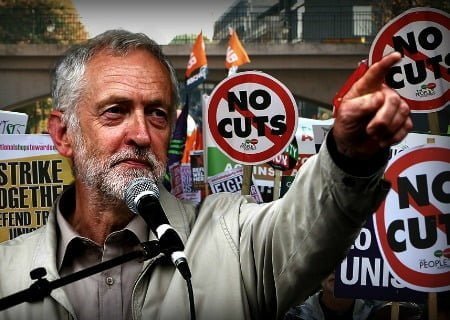 Whatever happens with the rule changes at this year’s conference, the fight will continue into the 2018 conference and beyond. Not only will the issue of mandatory reselection most likely be up for grabs, but so too will other issues relating to party democracy, including the election of the NEC.
Whatever happens with the rule changes at this year’s conference, the fight will continue into the 2018 conference and beyond. Not only will the issue of mandatory reselection most likely be up for grabs, but so too will other issues relating to party democracy, including the election of the NEC.
At present, party members elect just a small handful of NEC members – the rest come from the affiliates and a host of other special interests. Whilst the involvement of the affiliates (such as trade unions) is to be welcomed, many of the latter are appointed and not elected. For example, BAME (black and minority ethnic) party members do not get to elect the BAME representative – hence we end up with Keith Vaz sitting on the NEC.
The right wing want to increase representation for councillors (who are generally still a reflection of the past) to create a majority block against Corbyn.
We support the call, instead, for party member representation to be increased so that the NEC is accountable to conference and the members. All NEC members should be subject to election in one form or another, including the representatives from Scotland and Wales, where at present the party leaders just appoint themselves.
Any agreed review of party democracy must consider all these issues and not delay in taking action. This review must not try and avoid the reselection question, as is currently being suggested, in what will be seen as yet another “compromise” aimed at pacifying the Labour right wing. These Blairites will always be looking to reverse any agreed reforms – interim or otherwise – at the earliest opportunity and cannot be trusted.
Most importantly, the fight to democratise the Labour Party must go hand-in-hand with the fight for socialist policies and the election of MPs and councilors who will be ready to stand up for those policies – to defend our class, and not the interests big business.

